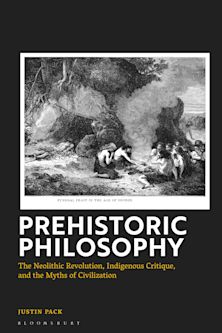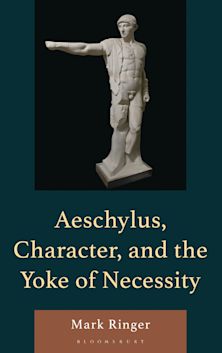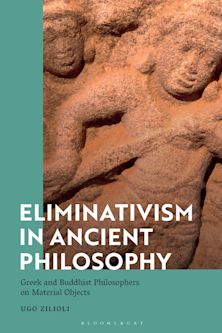Plotinus the Master and the Apotheosis of Imperial Platonism
Plotinus the Master and the Apotheosis of Imperial Platonism
This product is usually dispatched within 1 week
- Delivery and returns info
-
Free US delivery on orders $35 or over
Description
Unlike other recent studies, Plotinus the Master and the Apotheosis of Imperial Platonism is critical of Plotinus, and in particular of his version of Platonism, here described as “Imperial.” It is in contrast with Plato-a teacher whose dialogues challenge his students to think for themselves-that William H. F. Altman presents Plotinus as a master, who uses a seductive form of rhetoric throughout the Enneads to persuade his disciples to ignore his self-contradictions and decontextualized quotations from Plato while instead regarding his spiritual experiences, combined with a gift for the creative synthesis of previous thinkers, as the principal basis of their faithful and uncritical allegiance. While setting Plotinus in the context of the Roman Empire and his own critique of the Gnostics, this book grapples throughout with his current and virtually uncritical reception.
Table of Contents
Chapter 1. Plotinus the Master
Section 1. Teachers and Masters
Section 2. The Exegete of the Platonic Revelation
Section 3. Platonic Exegesis §1: Theaetetus 176a8-b2
Section 4. Plotinian Exegesis §1: 4.8
Section 5. Defending the Master
Section 6. Between Apollonius and Julian §1: Returning to the Cave
Section 7. Plotinus and Plato's Ion
Chapter 2. Porphyry the Disciple
Section 1. Three Portraits of the Master in Porphyry's Life of Plotinus
Section 2. The Master's Favorite Disciple
Section 3. Plotinian Exegesis §2: Longinus, Concerning the End (20.68-76)
Section 4. Between Apollonius and Julian §2: Pythagoras Reborn
Section 5. Longinus, [Longinus], and Anti-Imperial Platonism
Section 6. Platonic Exegesis §2: (R. 509b1-9)
Section 7. The Other Side of Porphyry's Life of Plotinus
Chapter 3. Porphyry's Successors
Section 1. The Apologetic Moment in the Interpretation of Porphyry's Life of Plotinus
Section 2. “A Text Worthy of Plotinus”
Section 3. The Reason Why
Section 4. Between Apollonius and Julian §3: Praising the Pagan Wise Man
Section 5. Plotinian Exegesis §3: 5.5
Section 6. Platonic Exegesis §3: (R. 506d7-507a5)
Section 7. Richard Harder and the Großschrift
Chapter 4. Imperial Platonism and the Gnostics
Section 1. In Defense of Dualism
Section 2. Nag Hammadi
Section 3. Gnosticism as Anti-Imperial Platonism
Section 4. Platonic Exegesis §4: Timaeus 28b2-c2, Republic 517a8-b6, Laws 945e2-946a1
Section 5. Between Apollonius and Julian §4: Solar Theology
Section 6. Plotinian Exegesis §4: 2.9
Section 7. Mazurism
Chapter 5. Pierre Hadot and the Real Plotinus
Section 1. Between Apollonius and Julian §5: “The End of Paganism”
Section 2. Mazur and Hadot
Section 3. Hadot's Plotinus
Section 4. Platonic Exegesis §5: Sophist 248e7-249a3
Section 5. The Real Plato?
Section 6. Plotinian Exegesis §5: 6.7
Section 7. The Revival of Plotinus: Why Now?
Chapter 6. Plotinus on Plato's One
Section 1. Between Reading and Misreading: Apollonius and Julian §6
Section 2. Interpretive Sophistry
Section 3. Why Plato's One is not the Idea of the Good
Section 4. Plotinus the Demiurge
Section 5. Platonic Exegesis §6: Parmenides 143a4-9
Section 6. The Pre-Existent “Stuff” of 6.6
Section 7. Plotinian Exegesis §6: 6.6
Chapter 7. The Rhetorical Apotheosis of Imperial Platonism
Section 1. Plotinus Orator
Section 2. Between Apollonius and Julian §7: Philostratus and Eunapius
Section 3. Dispositio
Section 4. Cosmos as Prophet and the Pagan Holy Man
Section 5. Plotinian Exegesis §7: 4.7.10
Section 6. Platonic Exegesis §7: Letters 312e4-313a6
Section 7. pe????? d?µ???????
Product details
| Published | Jan 29 2024 |
|---|---|
| Format | Hardback |
| Edition | 1st |
| Extent | 472 |
| ISBN | 9781666944396 |
| Imprint | Lexington Books |
| Dimensions | 9 x 6 inches |
| Publisher | Bloomsbury Publishing |
Reviews

ONLINE RESOURCES
Bloomsbury Collections
This book is available on Bloomsbury Collections where your library has access.



































